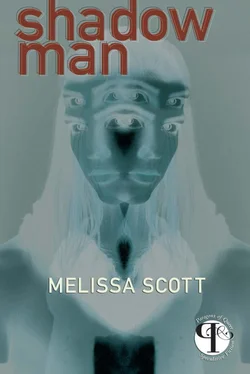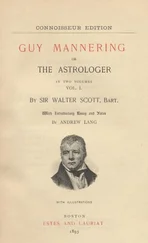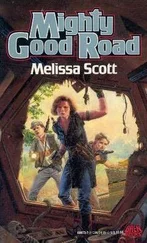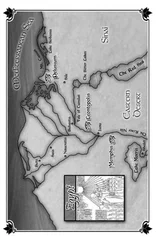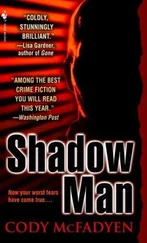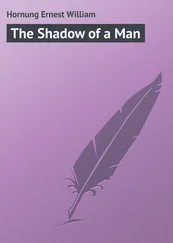“No one’s causing any trouble here,” Warreven said. “Except you for them.”
“We’re protecting the market,” the cameraman said. “Keeping a record. If people are ashamed to be seen—”
“It’s our responsibility to keep the peace,” the other mosstaas said again.
Warreven looked at them, seeing for the first time the badge, the Captain’s anchor awash in a sea of red and white flames: Tendlathe’s followers, ultra-Traditionalists. “The marketkeepers authorized this,” he said again, and reached out to touch the carved and painted circle with one fingertip. The mosstaas didn’t flinch, but his eyes were wary. “Their right supersedes yours—the Captain has no rights in the marketplace, that’s Madansa’s domain.” Warreven tilted his head toward the painted figure, her broad face impassive, hands outstretched over a frieze of food and cloth and glass. “I’m prepared to take this to the marketkeepers, and your superiors.”
“They’ll approve it,” the cameraman muttered.
The other mosstaas nodded. “Our superiors will back us in this, mir.”
“But they haven’t yet,” Warreven said. “Until then—and only if they agree—you have no right to be here.”
The cameraman glanced again at his superior, who hesitated, then nodded once, jerkily. “All right. But we’ll be back, and with all the authority you, mir, could want. We have friends higher than you.”
Warreven nodded back. “Tell Tendlathe that I—that Warreven—wants to talk to him.”
“I’ll tell him that,” the senior mosstaas said, and managed to sound menacing. At his gesture, the cameraman tucked his machine under his arm, and the two walked away across the market, disappeared down a side street toward the local headquarters. Warreven watched them go, wondering if he’d done the right thing when he reassured Tatian that Tendlathe’s power was limited. For the mosstaas to act like this—interfering in trade had always been Temelathe’s one great taboo—they had to be very sure, both of Tendlathe’s approval and his ability to protect them. He walked back toward the line of marketwomen, who offered scattered applause, softly, to keep it from carrying beyond the confines of the market.
“Thanks, mir,” Secontane said, and Warreven shrugged.
“Thank me if it works. They say they’ve gone to get written authority.”
“The marketkeepers will support us,” Secontane said, and beckoned to another fem. “Bet, go tell Farelok what’s happened, and tell him a marketmaster would help us a lot.”
“Right, baas ,” the woman—she was the most traditionally dressed of the group—answered, and started away, hoisting her skirts to her knees to move more quickly.
Warreven nodded, hoping she knew what she was talking about. “Good luck,” he said, and started back toward his own Watch House.
Important Man, Important Woman: a man or woman who has, by virtue either of a job or by election, been accepted as someone who can represent or speak for the clan.
Voska’s was crowded, as usual. Tatian paused just inside the door, grateful for the cool air that washed over him, let his eyes roam across the crowd. He recognized most of the people—fellow pharmaceuticals, staffers from ColCom and the IDCA and Customs, neighbors from EHB Three, a couple of port techs he’d played racquets with—and it took him only a few seconds to spot Arsidy Shraga and Eshe Isabon. They were sitting at their usual table, about equidistant between the live bar and the kitchen hatch, an empty platter between them. Isabon looked up then and lifted a hand to wave him over. Tatian waved back, but pointed to the bar. %e nodded, but Shraga lifted his empty bottle and mimed pouring another drink. Tatian sighed, and nodded: he would buy this round.
He crossed to the stationary bar and fed assignats into the automat, waiting for the locks to release. When the off-world section came around, he collected three double-serving bottles of wine, and then threaded his way through the tables to join his friends.
“Very generous,” Shraga said, and reached up to snare a bottle.
Tatian set the remaining bottles on the table and seated himself between them. Isabon tilted a bottle to the light to read the label and lifted an eyebrow.
“Very generous indeed.”
Tatian ignored the implied question, busied himself opening his own bottle.
“It’s good to see you again, Tatya,” Shraga said. From the sound of his voice, he’d been drinking for some time already. “I propose a toast. To home. Where they have five sexes, one calendar—”
“And everything isn’t spiked with a restricted substance,” Tatian said, and lifted his own glass in answer.
Isabon grinned. “And the only thing that jumps into your lap and purrs has four legs, not six, right, Shraga?”
Shraga shuddered ostentatiously, and Isabon went on, “Shraga just spent a week in the Estaern, and his hosts at the last mesnie raised land-spiders.”
“And gave them the run of the compound,” Shraga said.
Tatian gave the other man a sympathetic look. Haran land-spiders weren’t really spiders, of course; they were a species of crustacean, averaging thirty centimeters across the body, not counting the extravagant legs. They were friendly, docile, and spun the silk that clothed the wealthier half of Hara’s population, as well as provided a tidy export income for the Stillers, Feranes, and Delacostes—and they undeniably did purr—but he had never quite felt comfortable with the creatures. Of course, NAPD dealt in flora, not silk, so he’d never had to learn to like them.
“It did something interesting to the silk, letting them run loose like that,” Shraga went on. “You might want to check it out, Isa.”
Isabon nodded, looked at Tatian. “So what did you want, buying a nice drink like this?”
“To talk,” Tatian answered, and took a sip of the wine. It was good, chilled and not too sweet, and free of the underlying clove-tingle of Haran drugs. The music had started, off-world music with the bass tuned unnaturally loud, and he was grateful for the cover it provided. Isabon waited, a smile just touching %er thin lips, and Shraga made a face.
“Oh, my god, politics.”
“What else?” Tatian said. “The IDCA. And maybe Tendlathe Stane.”
“That’s a match made in hell,” Isabon said. “But hardly likely.”
Tatian said, “The IDCA have asked me—unofficially but firmly—not to do something, because it would give Tendlathe an excuse to act against trade and against them.”
“All at the same time?” Shraga asked, and Isabon hushed him.
“At the same time,” Tatian agreed. “And I’m under—shall we say considerable economic pressure?—to do exactly that. I’m wondering what you two know about Tendlathe’s status.”
“He has a lot of power,” Isabon said, %er voice without noticeable inflection. “So do the IDCA.”
Tatian waited.
“I heard,” %e went on, “that they’re being asked to step in on an emigration case. Trade matters.”
Shraga waved that away. “It’ll never happen. Not in Temelathe’s lifetime—and not in Tendlathe’s, he hates all of us. He’d like nothing better than for us all to pack up and go home.”
Isabon’s eyes flicked sideways. “Well, Shraga’s right there. Tendlathe really wants the Concord to go away.”
“How the hell would they manage without us?” Shraga demanded. “No metal, no tech of their own—”
“They did all right after the First Wave ended,” Isabon said impatiently. “He figures they can do it again.” %e fixed %er eyes on Tatian. “He’s very sensitive to issues of gender, it seems. And to trade. He seems to think that if they could just get rid of trade, all the herms, mems, and fems would just—disappear.”
Читать дальше
